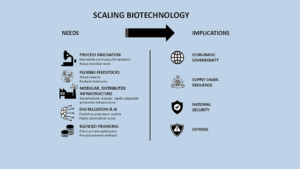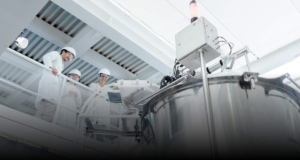
Cultivated meat debate clouded by misinformation
As cultivated meat moves closer to commercialisation, we are seeing a worrying trend of misinformation entering the public debate. This food can play a vital role in ensuring Europe’s food system is fit for the future – helping satisfy the growing demand for meat while boosting food security – but political opposition has mounted, with the Italian government taking the controversial step of banning cultivated meat.
Many of the false claims dominating the debate leading to this ban were repeated in an item of ‘any other business’ brought to a recent meeting of the EU’s 27 agriculture ministers. This included references to a preprint UC Davis study claiming cultivated meat would have a larger carbon footprint than beef – highlighted by a Changing Markets Foundation report as having been used as part of a misinformation campaign.
As well as not being peer-reviewed, this study is based on the incorrect assumption that the commercial production of cultivated meat would rely on pharmaceutical-grade cell culture media. This doesn’t reflect current practices, and peer-reviewed data has shown that food-grade ingredients can support cell growth. The findings deviate significantly from the wider literature, including a peer-reviewed study, based on input from cultivated meat companies and media suppliers, showing that producing cultivated meat at scale using renewable energy could lower climate emissions by 92% compared with conventional beef. The note also cited a 2019 University of Oxford study as evidence of cultivated meat having worse climate impacts than conventional meat. In fact, while this study was conducted when cultivated meat research was less developed and was based on a fossil fuel-intensive energy mix, it still found that cultivated meat is much better for our climate than the ‘best’ conventional meat production systems for at least the next 100 years.
Another claim is that cultivated meat does not provide higher animal welfare standards due to the use of foetal bovine serum (FBS). But while FBS is used as a medium in biotechnology settings, its price, inconsistency and limited supply means it cannot be used for producing cultivated meat at scale. Many companies have moved away from it and an FBS-free cultivated meat product has been approved in Singapore. It’s vital that these debates are informed by evidence and aren’t clouded by misinformation. For those looking for it, there is a wealth of independent information such as FAO & WHO and UNEP reports providing details about cultivated meat’s safety profile and environmental benefits.
The field has moved on a lot since it was developed by Dutch scientist Dr Mark Post just over a decade ago but remains in its infancy. The EU is home to some of the world’s best scientists in this area, but they need certainty from policymakers if their innovations are to benefit Europe rather than being used overseas.
Seth Roberts, is a policy manager with the international nonprofit and think tank the Good Food
Institute Europe, specialising in the regulation of food such as cultivated meat and precision
fermentation. He has expertise in EU and national government food safety policy and works with public authorities, food safety experts and businesses to secure a clear and evidence-based regulatory path to market for alternative proteins. He brings experience from the UK Civil Service and the House of Commons.
This article was originally published in European Biotechnology Magazine Spring 2024.


 adobe stock photo - Blackmint Studio
adobe stock photo - Blackmint Studio SPRIND
SPRIND Cyril Marcilhacy
Cyril Marcilhacy